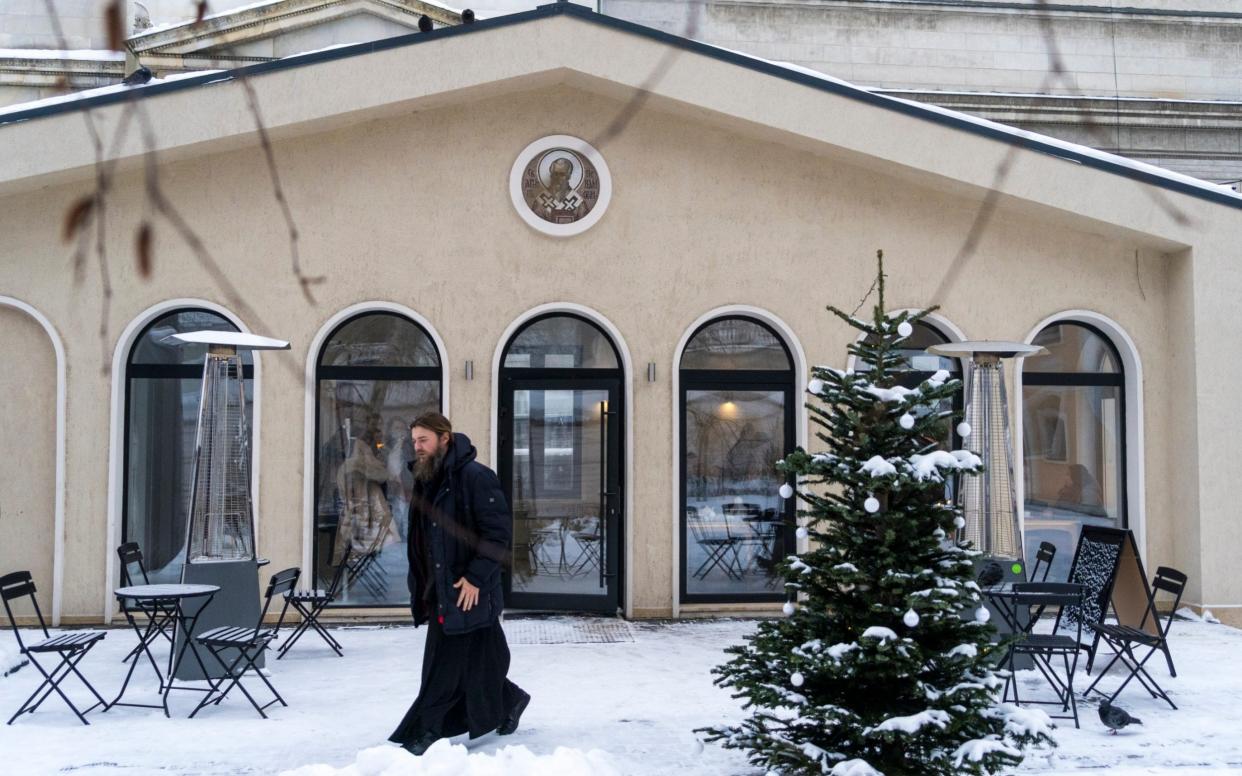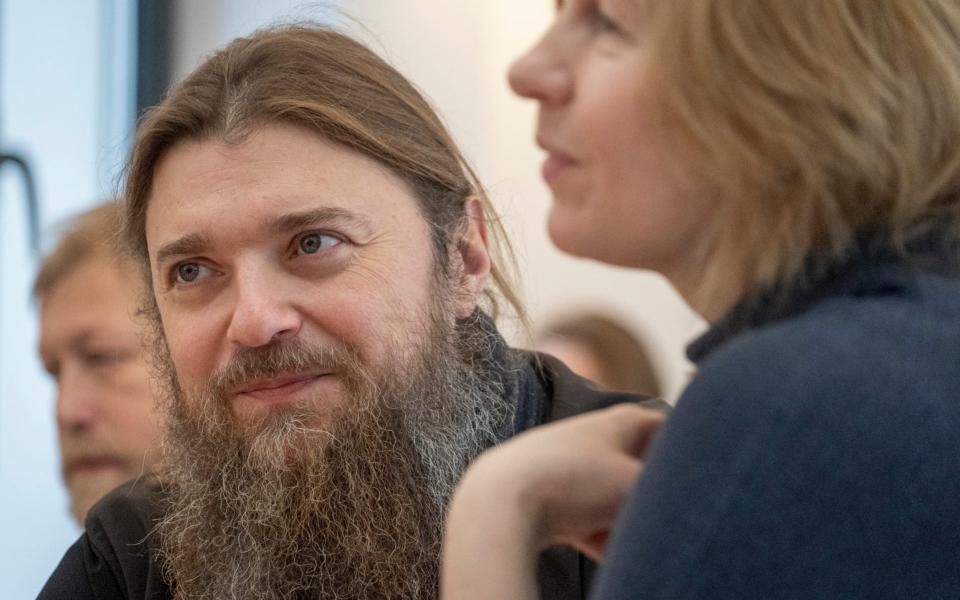Russian orthodox church makes unorthodox pitch to youth by courting Moscow's hipsters

Among the golden icons, incense and acapella chanting of the Orthodox Christmas service, an altar server pulls an iPhone from his robes and takes a photo of a priest that will later be uploaded to Instagram.
The Church of Saint Antipas, a short walk from the Kremlin in central Moscow, dates back to the 16th century but is taking a distinctly modern approach to attracting new worshipers.
The Russian Orthodox Church as a whole is a conservative, politically powerful institution that, unlike the Church of England or even the Vatican, has done little to adapt to the times.
But with its range of hoodies, smartphone cases, and a fashionable cafe on church grounds, Saint Antipas is making a unique appeal to a young, urban audience.
“In Russia there is sometimes wariness in relation to the Church. ‘You can’t walk here. You can’t stand there.’ There are shawls [for women to cover their hair],” said Father Andrei Shchennikov, a former stage and TV actor who now heads Saint Antipas.
While he supports Orthodox traditions, Father Andrei said he wanted to “defuse tension” around religious worship.

“You have to go where the people are,” the 44-year-old said of the church’s activity on social media. The priest himself used to run Saint Antipas’ Instagram account but he recently handed over duties after tiring of online “haters” and the need for constant updates.
The church counts a number of Russian celebrities among its congregation. Irina Abramovich, the ex-wife of oligarch and Chelsea owner Roman, is reported to be one of its financial patrons.
At the weekends, its “Antipa” cafe buzzes with millennial Muscovites. Along with flat whites and pastries, the cafe sells a slickly produced Orthodox lifestyle magazine called “Khleb” or “Bread”.
“It’s the centre of the city, people have pretty good taste. To communicate with them you have to talk in a modern way,” said Anastasia Balakireva, the up-and-coming architect who designed the space along with collaborator Mikhail Knyazev.
“Moscow’s a very driven city. There’s a calmer atmosphere here even if you’re not religious,” said the 30-year-old, who described herself as Orthodox but is not a regular churchgoer.
Services went ahead for Orthodox Christmas this week despite the coronavirus epidemic. While some worshipers wore masks, others went barefaced and kissed icons in line with Orthodox tradition.
Although the majority of Russians describe themselves as Orthodox believers, and President Vladimir Putin is often photographed at services, surveys show that few regularly attend mass.
Persecuted under the Soviets but now closely aligned with the Kremlin, the Orthodox Church has found itself at odds with progressive Russians in recent years.
Father Andrei said he had no argument with Church authorities and did not support any changes to the liturgy, which can last up to several hours and is still in Church Slavonic.
The Orthodox Church hierarchy has not commented publicly on Saint Antipas’s approach.
“I am a traditional conservative,” Father Andrei said. “The cafe, everything else, it’s like a ring that holds a previous gem - the gem is what has real value.”
“Only the Lord himself can call people to God.”

